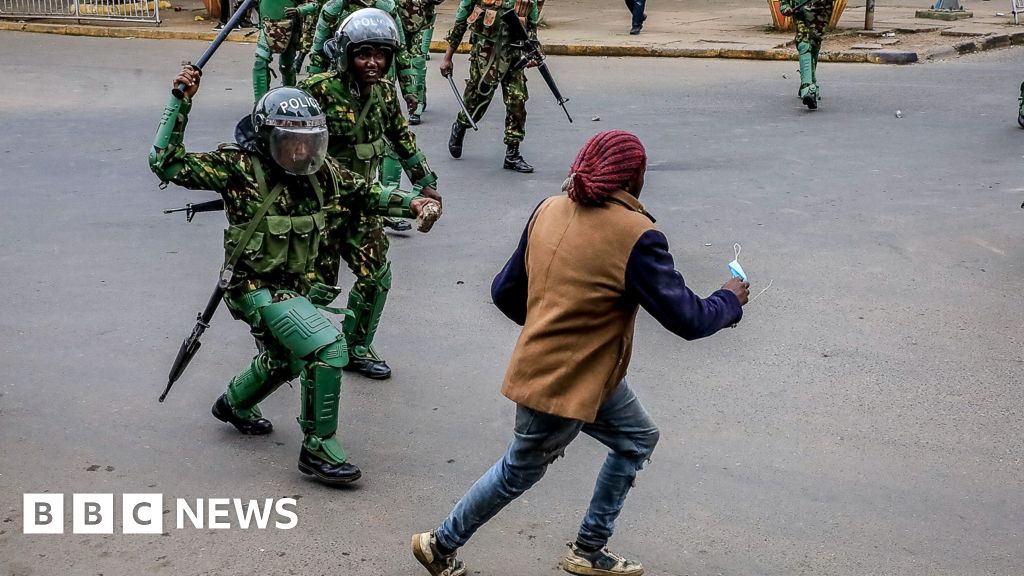Image source, Getty Images
- author, Basil Lukanga
- role, BBC News, Nairobi
Kenyan police have banned protests in central Nairobi and surrounding areas “until further notice”, citing leaderless protests making it difficult to ensure security.
It comes after a month of anti-government protests in which dozens have been killed, with further protests planned for Thursday.
Nairobi’s city centre has become the epicentre of youth-led protests taking place across the country.
The protests began against unpopular tax increases but expanded to include calls for President William Ruto to resign after the tax increases were reversed.
Online posters calling for people to gather on Thursday at Uhuru Park in the city centre, adjacent to Presidential House, the presidential residence.
“To ensure public safety, no demonstrations will be permitted in Nairobi Central Business District and its environs until further notice,” police said in a statement late on Wednesday.
The ban has sparked outrage online, with some arguing that police have no power to do so because Kenyan law gives people the right to demonstrate.
Police personnel are already heavily concentrated in the capital in preparation for protests.
Acting Police Commissioner Douglas Kanja said in a statement that the decision was made after receiving “credible intelligence that organised crime groups were seeking to exploit the ongoing protests”.
“Criminals continue to infiltrate protest groups, creating a disturbing trend of disorderly and destructive behavior,” the report said.
He added that the decision took into consideration that “previous protests had a lack of leadership,” making it “difficult to enforce safety protocols.”
Since the protests began, the president has accepted some of the protesters’ demands, including withdrawing the controversial finance bill and dismissing his entire cabinet.
The police chief also resigned.
But people are demanding more action against bad governance and corruption, and are calling for police to explain the deaths of dozens of protesters at recent rallies.
At least 50 protesters have been killed and 413 injured since protests began on June 18, according to the state-funded Kenya National Human Rights Commission.
More BBC coverage of the Kenya protests:
Image source, Getty Images/BBC


